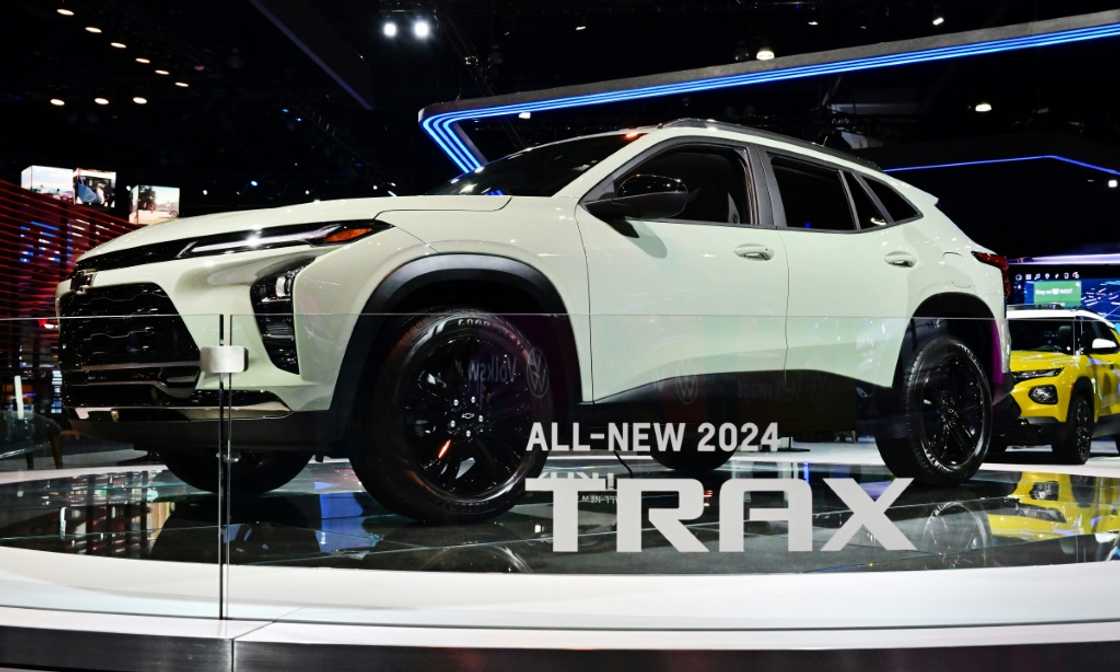General Motors profits fall on tariffs

Source: AFP
General Motors reported Tuesday that second-quarter profits tumbled by more than a third due to tariffs as it confirmed its full-year forecast.
GM's results topped expectations, but shares fell as the automaker projected weaker profitability in the second half of 2025.
The Detroit automaker, which has adjusted billions of dollars in investment in light of shifting US trade and environmental policies, said it benefited from continued solid pricing in its home market.
Profits overall fell 35.4 percent to $1.9 billion year-on-year, with a $1.1 billion hit from tariffs accounting for much of the drop.
Revenues dipped 1.8 percent to $47.1 billion, in spite of higher auto sales globally compared with the year-ago period.
GM was among the carmakers that benefited from a surge in demand this spring from US consumers who wanted to beat US tariffs. GM pointed to sales growth in North America where new and revamped trucks and sport utility vehicles sold briskly.
The United States imposed 25 percent tariffs on imported finished cars in early April, a move that affected major GM manufacturing operations in Mexico, Canada and South Korea.
Auto companies have also been buffeted by tariffs on imported steel and aluminum and auto parts.
GM reaffirmed its forecast of an overall hit of $4-$5 billion from tariffs in 2025 as it continues to import from those three countries "to avoid interruptions for our customers and dealers," Chief Financial Officer Paul Jacobson told analysts.
"Over time we remain confident that our total tariff expense will come down as bilateral trade deals emerge and our sourcing and production adjustments are implemented," Jacobson said.
Chief Executive Mary Barra declined to predict "a worst-case" tariff scenario, but said the outcome could potentially be better than the current policies on which forecasts are based.
Lower profitability expected
The Detroit-based company's outlook for a weaker second half of 2025 reflects "seasonally lower" volumes, increased spending on vehicle launches and the presence of two quarters with a tariff hit, compared to just one, the company said in a slide presentation.
GM expects annual operating income of between $10 billion and $12.5 billion after notching $6.5 billion in the first half of the year.
GM expects to mitigate "at least" 30 percent of the tariff hit through "manufacturing adjustments, targeted cost initiatives and consistent pricing," according to a slide.
In June, GM announced $4 billion over two years to expand production of plants in Michigan, Kansas and Tennessee, making use of unused capacity in its home market as President Donald Trump's tariffs penalize imports of finished vehicles.
The June announcement included steps to produce in the United States Chevrolet Equinox and Chevrolet Blazer, two vehicles which are currently assembled in Mexico.
GM has so far not shifted production from South Korea, home to production for the Chevrolet Trax, a popular compact SUV that is priced affordably.
President Donald Trump has set an August 1 deadline to reach broad trade deals with numerous countries, including South Korea, which faces a broad-based 25 percent tariff if there is no deal.
Barra told analysts the company's South Korea operation is one "we've had for a long time that's very efficient and high quality," adding that the company would avoid long-term decisions until it knows the outcome of talks between Washington and South Korea.
As GM has shifted production to the United States, it has also ramped up investments in internal combustion engine vehicles (ICE) in light of slowing growth in electric vehicles. Those dynamics will be compounded by the Trump's recent legislation to phase out tax credits for EVs after September.
Recent GM investments will boost GM ability to produce either EVs or ICE vehicles at plants depending on demand, Jacobson said.
"That flexibility is going to be important for us as we go through the next several years," Jacobson said.
Shares of GM fell 7.1 percent in morning trading.
Source: AFP




